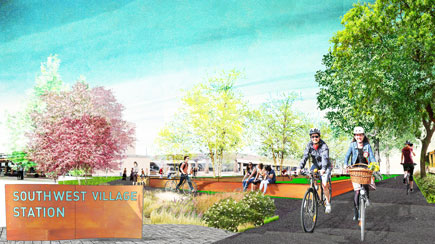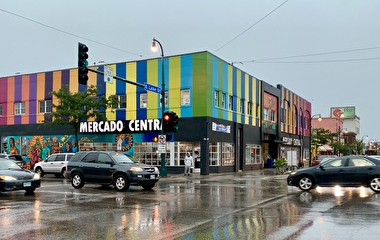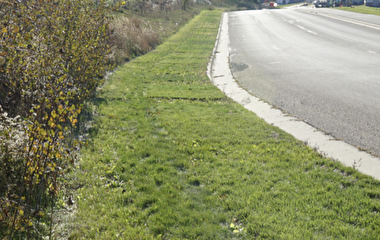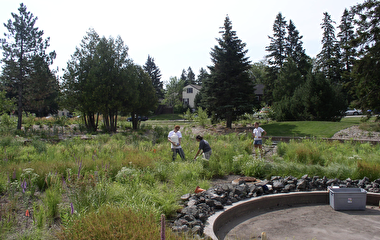Sarah Sularz
Each year, the U’s Resilient Communities Project (RCP) matches graduate and undergraduate students to sustainability-related projects in a Minnesota community. During the 2015–2016 academic year, RCP collaborated with Carver County and its partner organizations and agencies on 30 community-identified projects. As part of a CTS Research Conference session about RCP, several students shared highlights from their work.
Carver County’s projects were matched with 50 courses spanning 22 departments across 8 colleges at the U of M, engaging more than 350 students. One student was Tyler Olson, a graduate of the Department of Civil, Environmental, and Geo- Engineering. As a student in the University’s urban hydrology course, he took part in work on a best management practices (BMP) feasibility study for the Grace Chain of Lakes. The study, Olsen explained, involved analyzing the surrounding land, then modeling BMPs. The final deliverable was a combination of BMP recommendations that Carver County could implement to reduce the amount of phosphorus going into its lakes.
“In terms of program benefits, the industry experience was really valuable,” Olsen said. “[Team members] had to create our own timeline and figure out how to manage our project well, which is something you don’t really get in a regular academic class. There were a lot of unknowns we had to deal with.”
In addition, the team learned communication skills, navigated team dynamics, and made connections with practicing engineers, he said.
Another RCP participant, Sarah Sularz, used the RCP as her capstone for her master’s degree in landscape architecture. The design project explored how to increase bike and pedestrian facilities near Southwest Transit (SWT) park-and-ride locations, create safe trails from residential communities to SWT stations, and increase the number of SWT commuters who do not rely on automobiles.
Sularz chose this project “because I wanted a job as soon as I graduated,” she said. “And I got to work collaboratively with a committee member from my capstone in the Humphrey School, so I got a lot of interdisciplinary experience working with planners, people who are very interested in bike planning, as well as a lot of private firms in the Twin Cities that I got to collaborate with because it was a real project.”
A critical part of her work, Sularz said, was to not only evaluate the benefits of increased bikeability and walkability, but visually represent that for her clients in the form of a physical product they could distribute in the affected neighborhoods showing residents the potential changes, such as narrower vehicle lanes. She also needed to develop a safety framework and address environmental changes and impacts. Her project resulted in a 50-page design guideline and a visual framework for Carver County and the Southwest Transit Authority for the recommended proposals.
“And I’m happy to report that I was successful,” she said. “I got my job, and I graduated.”
RCP is a cross-disciplinary program at the Center for Urban and Regional Affairs that supports one-year partnerships between the University and communities in the state to advance local sustainability and resilience. Each academic year, the program chooses a city or county partner through a competitive request-for-proposal process. RCP’s goals are to provide the community with efficient access to the resources and expertise of the University, offer students a professional opportunity to apply their knowledge and skills to a real-world project, and provide faculty with ready-made applied-learning opportunities for the classroom.




